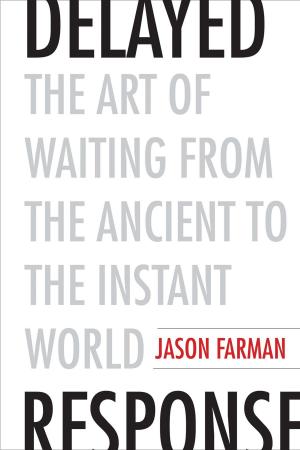Christ Child
Cultural Memories of a Young Jesus
Nonfiction, Religion & Spirituality, Theology, Bible & Bible Studies, Christianity| Author: | Stephen J. Davis | ISBN: | 9780300206609 |
| Publisher: | Yale University Press | Publication: | May 13, 2014 |
| Imprint: | Yale University Press | Language: | English |
| Author: | Stephen J. Davis |
| ISBN: | 9780300206609 |
| Publisher: | Yale University Press |
| Publication: | May 13, 2014 |
| Imprint: | Yale University Press |
| Language: | English |
Little is known about the early childhood of Jesus Christ. But in the decades after his death, stories began circulating about his origins. One collection of such tales was the so-called Infancy Gospel of Thomas, known in antiquity as the Paidika or “Childhood Deeds” of Jesus. In it, Jesus not only performs miracles while at play (such as turning clay birds into live sparrows) but also gets enmeshed in a series of interpersonal conflicts and curses to death children and teachers who rub him the wrong way. How would early readers have made sense of this young Jesus?
In this highly innovative book, Stephen Davis draws on current theories about how human communities construe the past to answer this question. He explores how ancient readers would have used texts, images, places, and other key reference points from their own social world to understand the Christ child’s curious actions. He then shows how the figure of a young Jesus was later picked up and exploited in the context of medieval Jewish-Christian and Christian-Muslim encounters. Challenging many scholarly assumptions, Davis adds a crucial dimension to the story of how Christian history was created.
In this highly innovative book, Stephen Davis draws on current theories about how human communities construe the past to answer this question. He explores how ancient readers would have used texts, images, places, and other key reference points from their own social world to understand the Christ child’s curious actions. He then shows how the figure of a young Jesus was later picked up and exploited in the context of medieval Jewish-Christian and Christian-Muslim encounters. Challenging many scholarly assumptions, Davis adds a crucial dimension to the story of how Christian history was created.
Little is known about the early childhood of Jesus Christ. But in the decades after his death, stories began circulating about his origins. One collection of such tales was the so-called Infancy Gospel of Thomas, known in antiquity as the Paidika or “Childhood Deeds” of Jesus. In it, Jesus not only performs miracles while at play (such as turning clay birds into live sparrows) but also gets enmeshed in a series of interpersonal conflicts and curses to death children and teachers who rub him the wrong way. How would early readers have made sense of this young Jesus?
In this highly innovative book, Stephen Davis draws on current theories about how human communities construe the past to answer this question. He explores how ancient readers would have used texts, images, places, and other key reference points from their own social world to understand the Christ child’s curious actions. He then shows how the figure of a young Jesus was later picked up and exploited in the context of medieval Jewish-Christian and Christian-Muslim encounters. Challenging many scholarly assumptions, Davis adds a crucial dimension to the story of how Christian history was created.
In this highly innovative book, Stephen Davis draws on current theories about how human communities construe the past to answer this question. He explores how ancient readers would have used texts, images, places, and other key reference points from their own social world to understand the Christ child’s curious actions. He then shows how the figure of a young Jesus was later picked up and exploited in the context of medieval Jewish-Christian and Christian-Muslim encounters. Challenging many scholarly assumptions, Davis adds a crucial dimension to the story of how Christian history was created.















